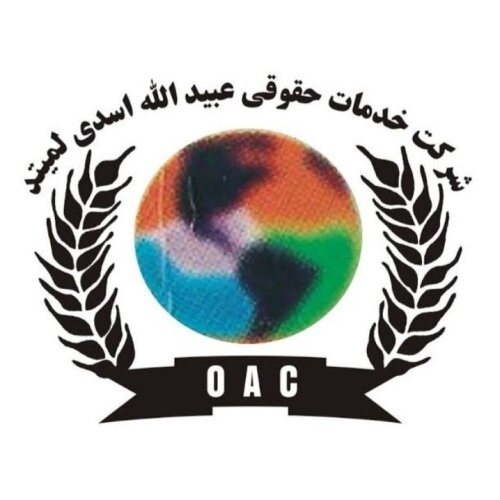Best Corporate & Commercial Lawyers in Afghanistan
Share your needs with us, get contacted by law firms.
Free. Takes 2 min.
Or refine your search by selecting a city:
List of the best lawyers in Afghanistan
About Corporate & Commercial Law in Afghanistan
Corporate and commercial law in Afghanistan governs the organization, operation, and regulation of businesses. This area of law covers company formation, operations, mergers and acquisitions, commercial contracts, foreign investment, banking, intellectual property, and more. The country's legal framework blends civil law traditions, Islamic law principles, and statutes enacted over the past two decades. Afghanistan's government has gradually introduced modern corporate and commercial laws to facilitate business development, economic growth, and investment, both domestic and international. However, unique challenges remain in terms of enforcement, practical guidance, and adapting legal processes to local contexts.
Why You May Need a Lawyer
Engaging a specialized lawyer in corporate and commercial matters in Afghanistan is crucial for many reasons. You may need legal guidance if you are:
- Starting a business or registering a new company
- Entering into or drafting commercial contracts
- Expanding or restructuring your business
- Merging with or acquiring another company
- Seeking to protect intellectual property such as trademarks or patents
- Navigating regulatory requirements or obtaining business licenses
- Resolving shareholder or partnership disputes
- Dealing with bankruptcy, liquidation, or corporate dissolution
- Complying with tax and labor regulations
- Managing foreign investment or cross-border transactions
Due to the evolving nature of Afghanistan's legal system and the interplay between statutory law and local customs, a qualified lawyer can help you navigate complex requirements and protect your interests.
Local Laws Overview
Afghanistan's corporate and commercial legal framework includes several important laws and regulations:
- Company Law: Outlines procedures for forming, managing, and dissolving companies, including limited liability companies, partnerships, and other business forms. It defines the role of shareholders, directors, and officers, as well as reporting and compliance requirements.
- Commercial Contracts: The Civil Code and Commercial Code regulate agreements between businesses, enforceable as long as they do not conflict with public policy or Islamic principles.
- Investment Law: Specifies guidelines for foreign and domestic investment, offering protections and incentives to encourage economic development, including the right to repatriate profits and protection against expropriation.
- Intellectual Property Laws: Afghanistan is a member of some international treaties and has national laws relating to trademarks, patents, and copyright, though enforcement can be challenging.
- Bankruptcy and Insolvency: Procedures and rights of creditors and debtors are regulated under the Commercial Code and related statutes.
- Taxation and Labor Laws: Companies must comply with tax registration and periodic filings, and adhere to labor regulations covering wages, contracts, and workplace safety.
- Regulatory Bodies: The Afghanistan Central Business Registry, Ministry of Commerce and Industry, Afghanistan Investment Facilitation Unit, and other sector-specific regulators play a role in oversight and licensing.
Due to ongoing reforms and local variations in the interpretation of laws, it is advisable to seek up-to-date legal advice for any corporate or commercial matter in Afghanistan.
Frequently Asked Questions
What types of companies can be registered in Afghanistan?
You can register several types of companies including limited liability companies (LLC), joint stock companies, general and limited partnerships, and sole proprietorships. Each has specific requirements regarding capital, ownership structure, and reporting.
How do I register a company in Afghanistan?
The process typically involves submitting documentation to the Afghanistan Central Business Registry, including a business plan, articles of association, proof of capital, and paying registration fees. Legal assistance ensures accurate compliance and expedites processing.
Are foreign investors allowed to own companies in Afghanistan?
Yes, foreign investors can own and operate businesses. The Investment Law provides various protections and allows for 100 percent foreign ownership in most sectors, with some restrictions in areas related to national security or natural resources.
What are the main obligations of a company under Afghan law?
Key obligations include compliance with company registration requirements, tax filings, maintaining accurate records, renewing licenses annually, and adhering to regulations concerning employment, health, and safety.
How does Afghan law protect commercial contracts?
Contracts are recognized under the Civil Code and Commercial Code, provided they do not conflict with Sharia or public policy. Courts generally enforce contracts if they meet legal requirements and are properly documented.
What is the dispute resolution process for business disputes?
Business disputes can be resolved through negotiation, mediation, arbitration, or litigation. Many contracts include arbitration clauses, and Afghanistan is party to the New York Convention, which allows for the enforcement of foreign arbitral awards.
How can I protect my intellectual property in Afghanistan?
You can register trademarks, patents, and copyrights through the relevant departments under the Ministry of Commerce and other authorities. Enforcement can be challenging, so proactive legal protection is recommended.
What taxes do businesses have to pay?
Businesses are subject to corporate income tax, value-added tax (in certain sectors), and other local taxes. Registration with the Ministry of Finance and adherence to filing schedules are required to avoid penalties.
Can I close or dissolve my company in Afghanistan?
Yes. The process involves notifying relevant authorities, settling debts, and filing final tax returns. Proper legal steps must be followed to avoid liability or future legal issues.
Do commercial laws differ by region in Afghanistan?
While core corporate and commercial laws apply nationwide, their application and enforcement may vary in different regions due to local practices, security conditions, and the influence of customary or Islamic law. Local legal counsel is highly recommended.
Additional Resources
If you need more information or support with corporate and commercial legal matters in Afghanistan, consider reaching out to the following resources:
- Afghanistan Central Business Registry and Intellectual Property Office (ACBR-IP)
- Ministry of Commerce and Industry
- Afghanistan Chamber of Commerce and Investment
- Ministry of Finance - Tax Administration
- Afghanistan Investment Facilitation Unit
- Major international organizations with business advisory services, such as the International Finance Corporation (IFC)
These bodies provide guidance, official documentation, and sometimes legal advisory services tailored to businesses operating in Afghanistan.
Next Steps
If you are considering setting up a business, entering into a commercial agreement, or facing a legal issue related to corporate and commercial law in Afghanistan, it is important to seek reliable legal advice. Here are the steps you should follow:
- Gather all relevant documents and information about your business or legal matter.
- Consult with a licensed lawyer who specializes in corporate and commercial law to assess your specific needs.
- Discuss the legal options, possible risks, and recommended strategies with your lawyer.
- Ensure you understand all obligations, timelines, and potential costs before proceeding.
- Keep updated with any changes to local laws or regulatory requirements that may affect your business.
Legal matters in Afghanistan can be complex and subject to change. Professional assistance ensures you stay compliant and protected while pursuing your business goals.
Lawzana helps you find the best lawyers and law firms in Afghanistan through a curated and pre-screened list of qualified legal professionals. Our platform offers rankings and detailed profiles of attorneys and law firms, allowing you to compare based on practice areas, including Corporate & Commercial, experience, and client feedback.
Each profile includes a description of the firm's areas of practice, client reviews, team members and partners, year of establishment, spoken languages, office locations, contact information, social media presence, and any published articles or resources. Most firms on our platform speak English and are experienced in both local and international legal matters.
Get a quote from top-rated law firms in Afghanistan — quickly, securely, and without unnecessary hassle.
Disclaimer:
The information provided on this page is for general informational purposes only and does not constitute legal advice. While we strive to ensure the accuracy and relevance of the content, legal information may change over time, and interpretations of the law can vary. You should always consult with a qualified legal professional for advice specific to your situation.
We disclaim all liability for actions taken or not taken based on the content of this page. If you believe any information is incorrect or outdated, please contact us, and we will review and update it where appropriate.
Browse corporate & commercial law firms by service in Afghanistan
Afghanistan Attorneys in related practice areas.
Browse corporate & commercial law firms by city in Afghanistan
Refine your search by selecting a city.












